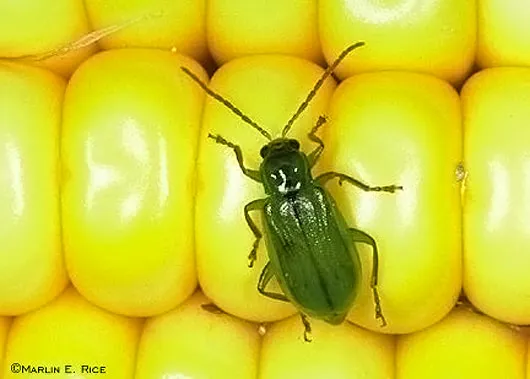Mega-agro-biotech corporation Monsanto recently denied that insects have developed resistance to their patented Bt corn. Injected with a bacterial gene toxic to corn rootworms, Bt corn has proven so successful with farmers that it now makes up 65 percent of the corn planted in the US. Fields of wilting, dying corn are now following years of massive popularity. Bt-resistant worms have been found in Iowa, Illinois and Minnesota, and are likely to continue spreading.
Profit motive aside, it's absurd that Monsanto would ever deny that resistance could occur. Monocultures are a pest's best friend, and no amount of high-tech genetic tweaking will get rid of the fact that pest species evolve at a lightning pace. Neither Monsanto nor outside scientists really thought that Bt-resistant pests would not crop up. The Environmental Protection Agency recommended that fields be planted 50/50 with Bt and "normal" corn, while Monsanto scientist-accountants claimed that a 80/20 split would be sufficient to keep resistant mutations from spreading through the worms' gene pool.
What's so striking about this is not the cynical corporate denial, (which we've come to expect), but Monsanto's industrial conception of pest management. It adopts an outdated, early 20th century view of nature: that it can be completely understood, contained, and made static through the power of science. A truly next natural approach to pest management takes into account the principles of guided growth. By providing room for natural genetic variation and maintaining diverse communities of crop species, guided growth helps plants to help themselves- an approach which is, ironically, more characteristic of "old fashioned" organic farms than vast tracts of single-crop GM fields. Of course, I may be giving Monsanto too little credit for their corporate strategy. Without the wonders of pest resistance, they would not be able to roll out a new product every few years. Sustainable systems are bad for capitalism.
Via Mother Jones. Image via Iowa State University.


Comments (0)
Share your thoughts and join the technology debate!
No comments yet
Be the first to share your thoughts!